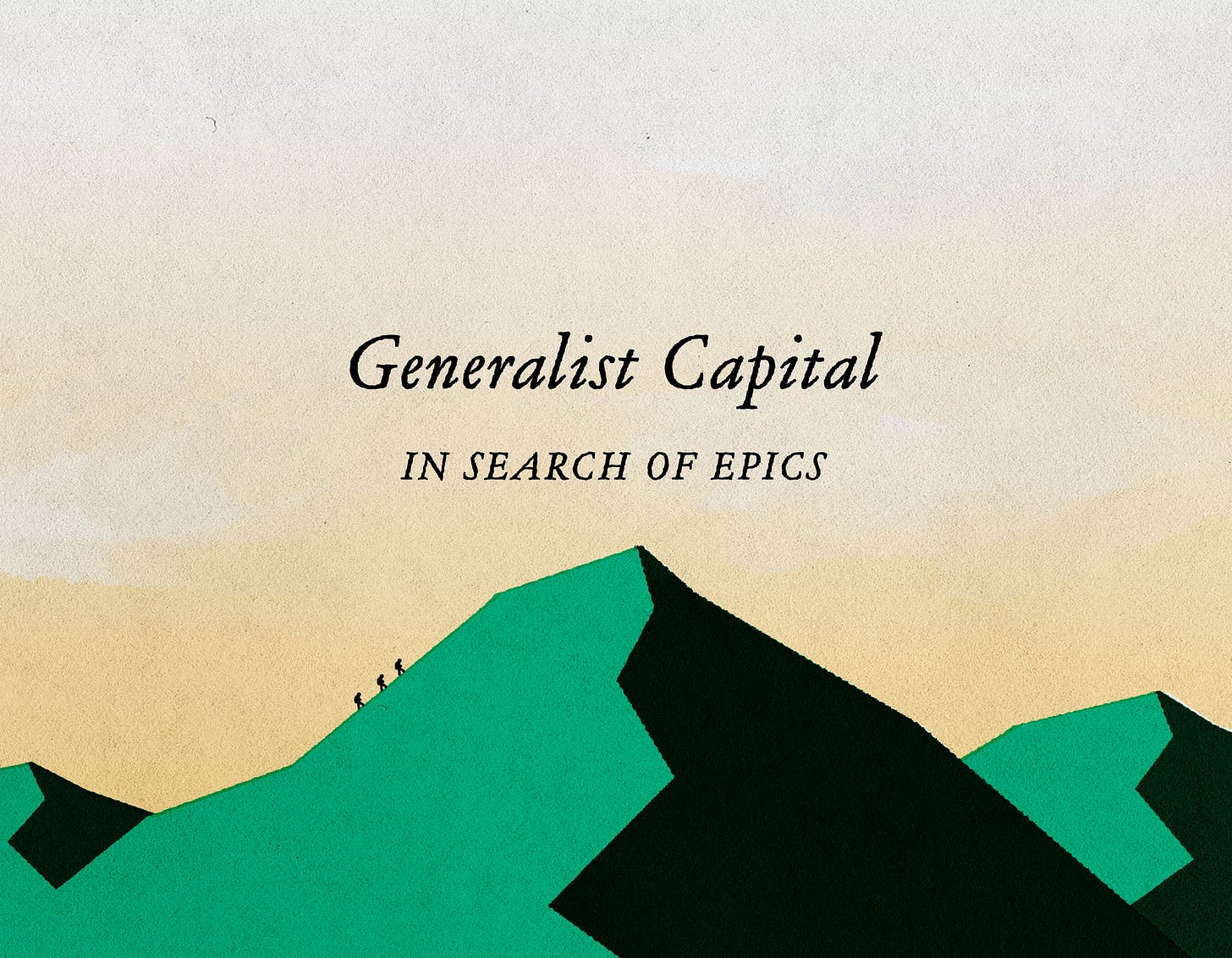Generalist Capital: In Search of Epics
We have raised a $12.25 million fund designed to help a small number of founders maximize the power of narrative.
Brought to you by Stytch
Want to boost conversion and drive growth?
Stytch makes user authentication and onboarding seamless and secure. We offer customizable, out-of-the-box authentication with magic links, one tap social logins, biometrics, one-time passcodes, session management, and more. We’re your all-in-one platform for auth…



